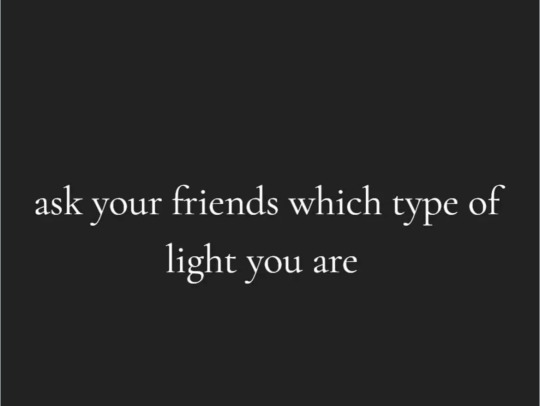#engagement bait
Explore tagged Tumblr posts
Text
good puppies follow orders
good puppies wag tails! good puppies perk ears!
good puppies follow orders
good puppies bark! good puppies lick faces!
good puppies follow orders
good puppies love their owners! good puppies' owners love them too <3
good puppies follow orders
good puppies submit good puppies obey
good puppies follow orders
good puppies get on their knees. good puppies moan. out loud puppy.
good puppies follow orders
good puppies like. good puppies reblog. good puppies bark and whine in the tags
#dumb puppy#mtf puppy#petting#hypnosis#hypnok1nk#hypnosub#hypnotized#ftm puppy#puppy sub#puppy nsft#bd/sm puppy#hypno puppy#barking#hypno fantasy#engagement bait#petpl4y#petpl@y
324 notes
·
View notes
Text
hey guys I'm gonna start queuing my posts to post daily 👽
10 notes
·
View notes
Text
Combination of actual favorites and books that were formative to young Me. Some of these I wouldn't necessarily recommend now (Heinlein, the Young Jedi Knights series) but most of them I would. In the case of series I put the first one or a particular favorite. If you've read any of it, it counts imo. I have declared that plays are books. Manga is also books. There are only 49 books in the listicle because the 50th one is Violent J's memoir Behind the Paint, which is only sold on ICP's website so it doesn't have an ISBN. Yes I am dead fucking serious.
8 notes
·
View notes
Text
i need to be fed a hamburger
6 notes
·
View notes
Text
Help?
I need a screenshot of a really blatant engagement bait item for an information literacy session I'm teaching, and now that I need one, Facebook isn't giving me any*.
I had in mind one of the kind that's a really dumb trivia questions--"there are no US states that begin and end with the same letter," or "Only really smart people can name five animals that start with the letter M," that kind of thing--but I could rework my text to use something else.
So if you see anything like that in the next day or so, can you do me a favor and take a screenshot? Just paste it into the replies, and I can copy it out of there.
(*It's giving me bad AI photos of patriotic subjects instead, because I fell for it and clicked into one to see if anyone had commented on how several of the US flags shown had two fields of stars.)
#I am a master of information science#engagement bait#funny how when you're actually looking for one you can't find it
7 notes
·
View notes
Text

which 1 r u (this is engagement bait )
6 notes
·
View notes
Text
Rant about engagement baiting....
3 notes
·
View notes
Text
+1 note on this post = +1 inch on my peanis
5 notes
·
View notes
Text
we need to start gatekeeping the division symbol we used back in like grade 3 nobody fucking uses it except for morons looking to engage in interaction bait because nobody knows how to use PEMDAS/BEDMAS/whatever. just use a fraction you Dumb Cunt

shit like this pisses me the Fuck Off if i ever catch you posting this shit i will fucking kill you dead
#evil#math#interaction bait#engagement bait#if you post math problems like this and ask others to solve it with emojis and shit you should be crucified
3 notes
·
View notes
Text
Hey so apparently posting something like "reblog if [criteria]" or "reblog with [information]" is an easy way to get a tonne of notes so, um...
Reblog with your favourite video game I'll go first
Undertale
0 notes
Text
Y'all, please do not interact with engagement bait like this. We do not need to be doing this crap here.

0 notes
Text
Helium Balloon

Rage baiting is the ultimate jokester scam you choose to fall victim to, and “some men just want to watch the world burn!” Alfred Pennyworth.
From an instagram post to reactions to what is buzzing in pop culture to every day news broadcasted across the world. Hate, can bring a lot of people together and drive a lot of people insane. In this case this form of hate is only used to garner a reaction. Ask anybody and they’ll tell you “It’s provocative, it gets the people going.” A bunch of Chazz Michael Michaels causing havoc on the net. Let us not give in. Let’s ignore the immaturity and laugh in unison at what they want out of us, and that being attention and us acting out of character. If we had energy bars attributed to us in video games as the main character you wouldn’t waste half a bar responding back to these chupacabras.
Now that you know, and I know you know… but it’s ok you’re a victim. It would behoove those moving forward to stay wary of the engagement bait leading to rage.
This flows into my Helium Balloon Theory: Everyone has this balloon and whether you choose to share it to the world is up to you. People are naturally curious and notice how you are with your balloon. They notice how you act with it, how you parade it around, and how you talk about it. Whether they have one or not, it clearly doesn’t matter. The trap is already set, and if you’re just passing by to give a like or reading the comments there is someone down under looking to ruin your day. Best of luck to you on your journey on the water.
#tech blog#the more you know#stay vigilant#stay dangerous#be yourself#ragebait#engagement bait#tumblr fyp#fyp#knowledge is power#technically#informative#above water#floating#stay afloat#banksy#scam warning#theseus scamander#SoundCloud
1 note
·
View note
Text
i need some asks or pictures or something if you can’t tell i’ve been having a horrible night
0 notes
Text
Do Not Engage With The Bait Directly
Instead, respond to it in broad, general terms. Dissect it, scrutinize it, ridicule it, call it out, or use it to illustrate systemic issues—but never engage with the post or comment directly. Doing so only fuels the orange clown’s omnipresence, which is precisely what he thrives on.

As a veteran and a proud hater of terrorists, dictators, authoritarians, fascists, rapists, traitors, and mobsters, let me make something crystal clear: absolutely nothing that bloated, diarrhea-orange blob of coagulated Cheeto paste masquerading as a "leader" has ever done—or promised to do—has been or ever will be beneficial to me, my fellow veterans, or my brothers and sisters in service. This includes even those too blind, too brainwashed, or too willfully ignorant to see through his paper-thin, jerky-tanned skin or remember the oaths we all took. For those of us who still understand what that oath means, it wasn’t some empty recitation. We swore to protect this country and its Constitution precisely from criminals like him and the terrorist cults that prop him up—"enemies foreign [AND DOMESTIC]." Read that last part slowly if the syllables are too complicated for your Cheeto-cult-addled brain.
No one, absolutely no one, owes you or your propagandist, bootlicking, cultist ilk a shred of gratitude. The audacity—no, the delusional entitlement—of you to demand it is laughable. What people actually owe you is a final nail in the coffin of your regressive, petulant tantrum of a movement, so you and your pathetic lot can fade into the dark, irrelevant corners of history where you’ve always belonged.
You are not supreme. You’re not special. You’re not outsmarting anyone but yourselves, getting duped—over and over again—by a con man who is the literal embodiment of the lowest common denominator. You’re a collective of entitled trolls, too stubborn to accept the reality that your so-called savior isn’t just a failure; he’s your failure. You fell for it. Again. And instead of self-reflection, you double down, dragging the rest of us into your dystopian delusions. In short: take your propaganda and shove it where the sun doesn’t shine. The rest of us are too busy fighting for a future untainted by your pitiful need to worship mediocrity wrapped in a spray-tanned con job. The history books won’t be kind to you, and they shouldn’t be.
#maga#maga2025#project 2025#dont take the bait#click bait#outrage bait#engagement bait#engagement farming#facebook#propaganda#cesspool#facebook groups#anonymous member#anonymity is a cancer#veteran#army veteran#disabled veteran#military oath#military#oath#soldier#us army#constitution#foreign and domestic#maga is a cult#fuck trump
1 note
·
View note








